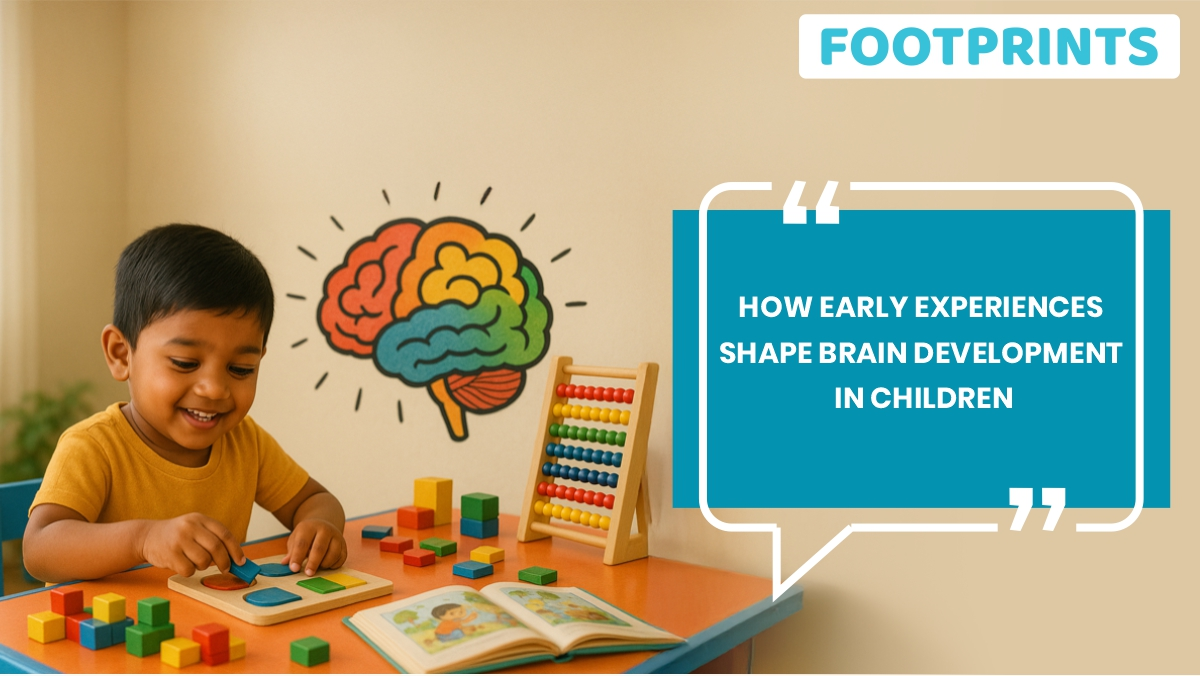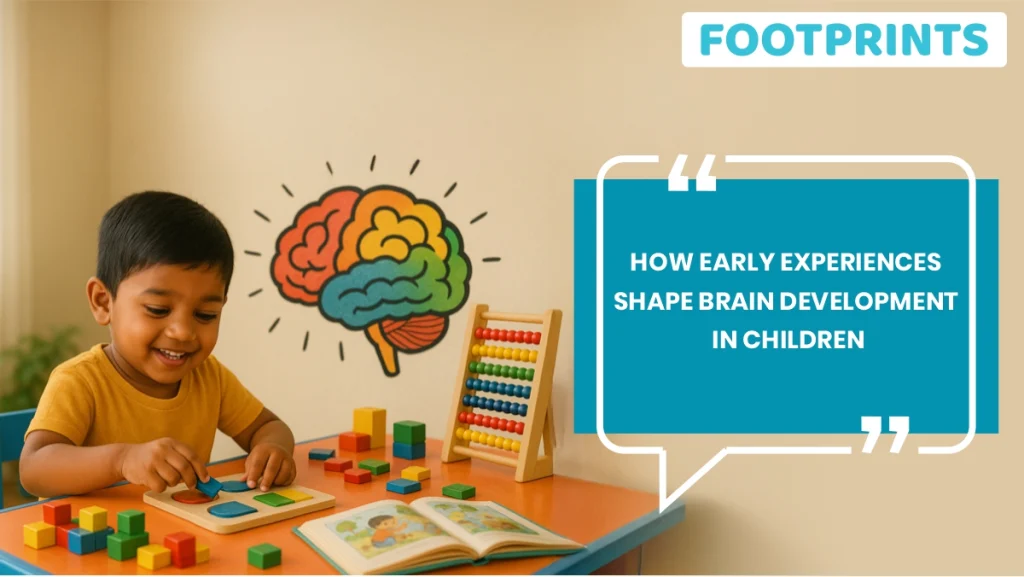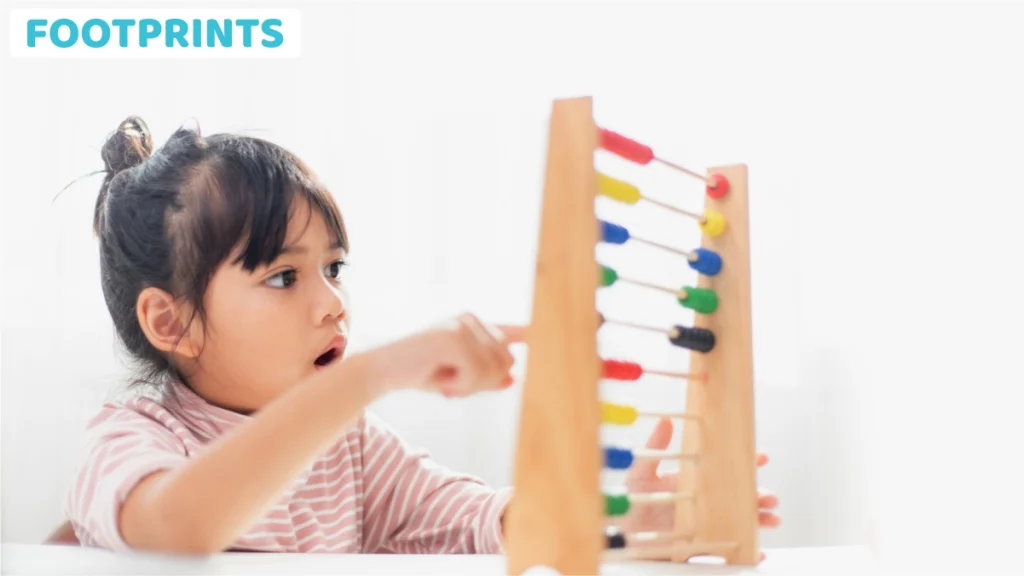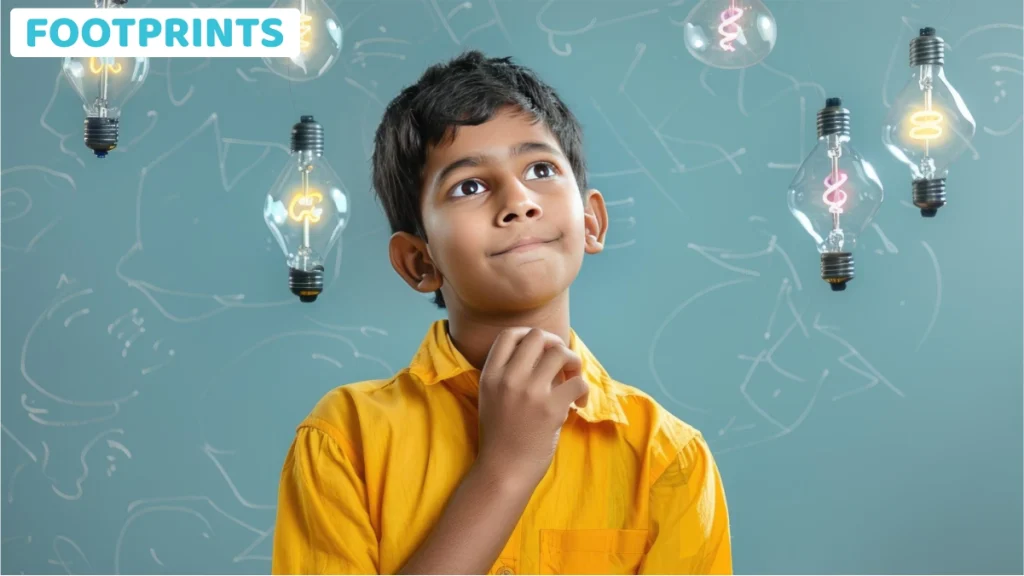

It is fascinating how a baby’s brain undertakes a journey of growth and transformation from the time he or she is born. Research shows that 90% of a child’s brain development takes place by the time they are 5 years of age. This does not mean that the brain cells are growing in number during this period. On the contrary, a child is born with the neurons it will have in its adult life. What is happening is that the connections between these brain cells, what are known as “ synapses” are being formed at a rapid rate. In fact, more than 1 million new neural connections are formed every second in the first few years of life. Just to put things in perspective- these synapses are required for a whole lot of abilities, including higher-level abilities such as problem-solving, empathy and self-control, that are markers of a fruitful life.
If there is one thing that goes into building these neural connections, it is the early experiences that the child goes through. The brain, at this time, is said to be most plastic, meaning that it adapts and reorganizes according to the quality of its experiences. When a child experiences positive interaction and positive stimulation, these connections develop easily. On the other hand, a lack of positive stimulation makes it difficult for them to develop fully.
Let us look at this phenomenon a little closely. Positive experiences shape brain architecture in the following ways:
- Being surrounded by caring adults who respond to the child’s cues, is an important enabler of healthy brain growth. These relationships begin at home with the primary caregivers but also include teachers and other members of the community. Picture this- an infant cries, and the caregiver soothes the infant. What it helps the child do, is to build strong emotional bonds. It also lays an early foundation for self-regulation and communication. In other words, “Serve and return” interactions, where caregivers respond to a child’s coos, cries, or smiles, help in healthy brain development.
- On the other hand, lack of dependable caregiving can lead to a wide variety of issues including but not limited to emotional dysregulation, behavioural issues, long-term mental health challenges, inability to form healthy relationships and overall failure to thrive.
- Stimulating environments that are rich in care, play, conversation and exploration help build cognitive ability and resilience
- Repeated exposure to language, music or movement reinforces neural pathways.
Overall, it is important to remember that connections that are used repeatedly become stronger and more permanent, while those that are used less often fade away through a process called pruning.

How to Improve Child Brain Development
When it comes to improving the brain development of the child, the good news is that you do not need to buy expensive toys or accompaniments. Instead caring, intentional and meaningful interactions can go a long way in enhancing it. Here are some experiences to delve in:
- Talk often – Go ahead and narrate your daily routines to the child, ask open-ended questions, and listen actively.
- Play creatively – Pretend play, building blocks, and storytelling go a long way in fostering imagination and problem-solving.
- Read together – Books introduce vocabulary, structure, and emotional nuance.
- Encourage movement- Physical activity supports coordination and brain-body integration.
Needless to say, these experiences need to be complemented with the right nutrition and adequate sleep.
Brain Development Ages and Stages
Understanding brain development by age can also help caregivers tailor their support. Typically the various stages of brain development progress as follows:
Age Range
0-12 Months
1-3 years
3-5 Years
Key Brain Development
Sensory Processing, Motor Skills, Emotional Bonding
Language Processing, Memory, Basic Reasoning
Imagination, Impulse Control, Social Skills

To Sum up
The important bit to remember is that the effects of early brain development have a far-reaching impact. Strong neural foundations lead to better academic performance, emotional stability, and strong social relationships. Conversely, gaps in early development can result in challenges that persist into adulthood.
While parents play a frontline role in shaping brain development in children, the ripple effects extend far beyond the home. Teachers, educators and communities, also play a very important role in how this brain development unfolds. It is the collective experience and the stimulating environment provided that lay the groundwork for lifelong learning, behavior, and health.
In fact, research shows that investments in early childhood yield some of the highest returns in human capital. Not only are children who experience enriched environments and nurturing relationships during key brain development ages and stages more likely to succeed academically, socially, and economically, but we also tend to build a more empathetic, innovative, and resilient society.
At Footprints Playschool, we are extremely committed to the cause of early childhood development. The scientifically developed HighScope Curriculum is based on more than 50 years of research on early childhood development. The HighScope Preschool Key Developmental Indicators, in turn, provide the content by which we can measure the progress of active learning as it takes place
FAQs
- What is the most critical brain development age?
The first five years are the most critical, with rapid growth and plasticity peaking between birth and age three. - How can I support baby brain development at home?
Respond to cues, talk frequently, play, read, and provide a safe, loving environment. - What are the stages of brain development in early childhood?
Sensory and emotional development (0–2), language and social skills (2–5), and logical thinking (5–7). - Can stress affect brain development in children?
Yes. Chronic stress can impair emotional regulation and cognitive function, especially in early years. - What foods help improve child brain development?
Foods rich in omega-3 fatty acids, iron , and antioxidants support brain health. - How does play influence brain growth in early childhood?
Play enhances creativity, problem-solving, emotional regulation, and social understanding. - Is screen time harmful to brain development?
Excessive passive screen time can hinder attention and language skills. Interactive, age-appropriate content in moderation is better. - How do relationships affect brain development in children?
Secure attachments with caregivers foster emotional stability and cognitive growth through consistent, responsive interactions. - Can music improve brain power in children?
Yes. Music supports memory, pattern recognition, and emotional expression. - What role does sleep play in brain development?
Sleep is essential for memory consolidation, emotional regulation, and overall brain health.
Shubham is an SEO expert dedicated to helping businesses to thrive in a digital landscape. His innovative marketing campaigns have significantly boosted the organization’s reach and engagement.

